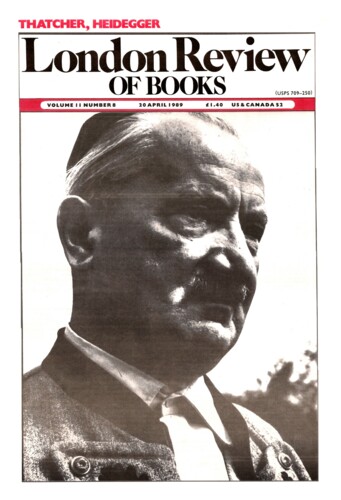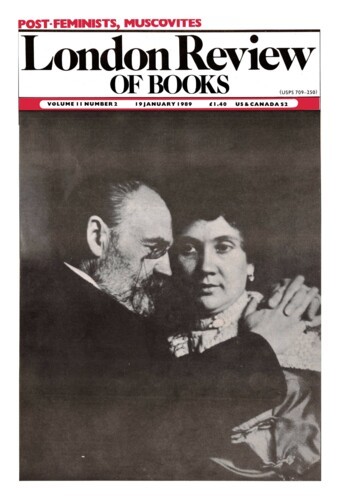Growing up
Dinah Birch, 20 April 1989
Growing up means leaving a family behind, and the novel has built itself around the diversity of separations that make maturity happen. It follows that any prospect of a universal rebellion against the family would be bad news for fiction. You can’t leave parents behind if they were no more than discredited ghosts in the first place. It’s tempting to suspect that an erosion of patriarchal authority had made today’s novelists more anxious about the staying power of the family than they used to be. There is plenty of evidence for such a thesis. But too much confidence in deducing a social revolution from chronicles of fathers found wanting or mothers that fail might be rash, for discontent with the family has been as persistent as the family itself. You don’t have to look very deeply into the history of fiction to discover delinquent parents. The fact is that astute writers, from Defoe onwards, have always known that families are at their most tenacious when they fall short of what we feel entitled to expect.


